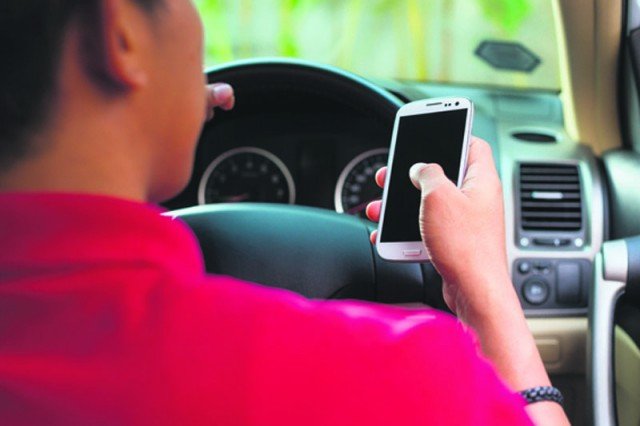USAG Stuttgart Safety Office
Many of today’s workplaces and households rely heavily on mobile phones for quick and convenient communication. Chances are there is a mobile phone in your life to help you keep connected, almost instantly to the entire world.
As much as these devices may keep you connected to the world, the news your family and others, they often disconnect you from the world right around you, which can be very dangerous at the wrong time, most notably, while driving.
According to www.distraction.gov, the U.S. federal government website for information on distracted driving, 10% of drivers under the age of 20 involved in fatal crashes were reported as distracted at the time of the crash, making mobile phones, GPSes and other similar devices, quite literally, a deadly distraction.
Here are some typical distractions behind the wheel. Do any of them sound familiar?
- Mobile phone use
- Reading or sending text messages
- Trying to find a radio station or selecting music on your smart phone
- Reaching for a moving object inside the vehicle
- Trying to eat or drink while making sure nothing spills on your clothing
- Looking at an object or event outside of the vehicle
- Reading a newspaper, map, or document
- Applying makeup
- Focusing on the GPS or other electronic gadget instead of the road
Here are some reminders for driving safely without distractions:
- Be aware that using a hands-free, voice-activated mobile phone also increases driver impairment. Hands free devices increase driver impairment as much as having a couple of drinks of alcohol.
- Never read or send text messages while driving.
- Keep your hands on the wheel and your eyes on the road.
- Program your GPS and familiarize yourself with the route before you start driving
- A safe driver also stops before checking maps and addresses, looking at paperwork, and dealing with similar distractions.
- Avoid eating or drinking in the car. Stop and take a break when you want to eat or drink. The break will also help to make you more alert.
- Avoid stressful conversations with passengers that can divert the driver’s attention from the road.
For more information on distracted driving, or to take a distracted driving pledge or help reduce distracted driving in other ways, visit www.distraction.gov.

